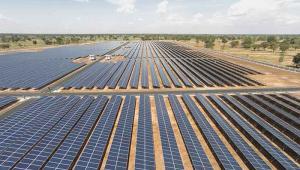A study by the IMF shows that more efficient energy pricing would have cut more than a quarter of global carbon emissions.
China and the US were the top subsidisers according to the latest figures for 2015, propping up their fossil fuel sectors to the tune of $1.4trn and $649bn respectively.
The IMF report, Global Fossil Fuel Subsidies Remain Large: An Update Based on Country-Level Estimates, projects subsidies in 2017 amounting to 6.5% of global GDP.
At the same time, the Fund acknowledges that there is now “unprecedented” worldwide interest in the reform of fossil fuel pricing.
Reducing carbon dioxide emissions from fossil fuels is central to the greenhouse gas mitigation commitments of 190 countries under the 2015 Paris Agreement.
Many countries are also concerned about dangerously high local air pollution and, in the aftermath of the financial crisis, face growing fiscal pressures from rising debt levels.
“Increasing fossil fuel prices is administratively straightforward and could play the central role in addressing all three concerns,” says the IMF report.
However, the IMF found that underpricing of fossil fuels remains “pervasive and substantial”.
Country-level coal prices were typically well below half of their fully efficient levels in 2015, and road fuel prices frequently fall short of their efficient levels by over 20%.
The main recipients of fossil fuel subsidies are local coal and petrolum sectors – where pricing is often set according to the national interest – which together account for 85% of global subsidies.
Coal remains the largest source of subsidies (44%), followed by petroleum (41%), natural gas (10%), and electricity output (4%).
Fairer pricing for fossil fuels would bring huge environmental and health benefits to these countries.
A study in the European Heart Journal in March, for example, noted that air pollution, mostly from fossil fuels, causes more deaths than smoking.
Subsidy reform would also ease pressure on tightened government budgets at a time when there is also growing public pressure on governments to act on climate change.
The IMF says that if fuel prices had been set at fully efficient levels in 2015, estimated global CO2 emissions would have been 28% lower, fossil fuel air pollution deaths 46% lower, and tax revenues higher by 3.8% of global GDP.
Although the composition of energy subsidies may change as countries ramp up their Paris pledges and tackle air pollution, the IMF anticipates large fossil fuel subsidies “will persist for the foreseeable future”.








